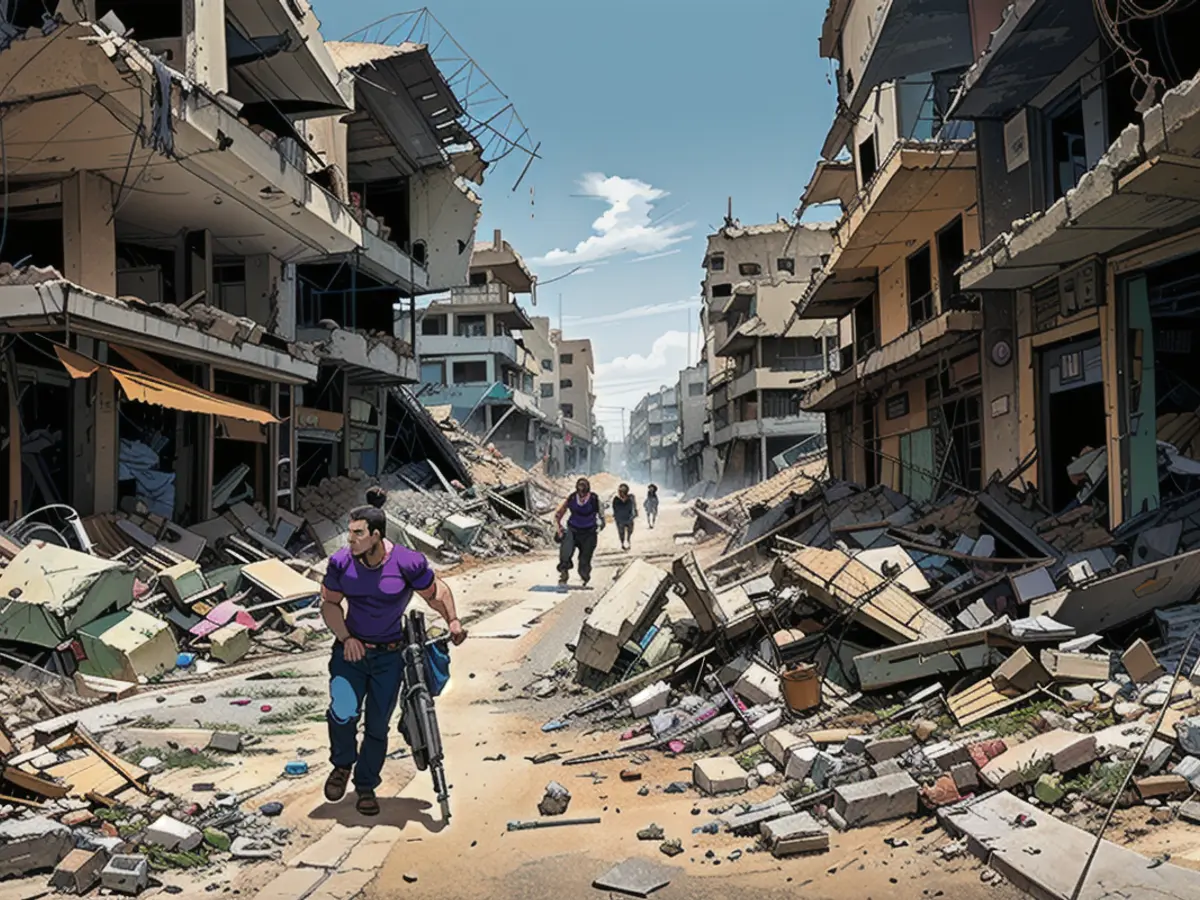Potential agreement may put an end to the Gaza conflict
Typically, there are two approaches to achieve peace, one is when the adversary fully surrenders, as in the case of the United States bombing Hiroshima and Nagasaki and Japan surrendering to end World War II. The other option is when the participants recognize a "mutually hurting stalemate," which we seem to be experiencing in Gaza right now.
However, convincing both parties to consent to and execute the peace plan is far from certain. Often in sensitive negotiations, terms remain secret until a deal is finalized.
Additionally, the military leader of Hamas, Yahya Sinwar, who effectively controls Hamas's actions, and Israeli Prime Minister Benjamin Netanyahu each have their motives for potentially prolonging the conflict. Sinwar because every Palestinian death diminishes Israel's global reputation, while Netanyahu faces domestic political challenges that would probably intensify the moment guns fall silent.
Yet, Israel can never achieve Netanyahu's objective of "total victory" against Hamas. US intelligence suggests that only around one-third of Hamas fighters have been eliminated in the war thus far, according to Politico, while 36,000 Palestinians have already lost their lives due to the conflict, according to the Gaza Health Ministry. (Some other estimates suggest at least 24,000 deaths. Whether the total is 36,000 or 24,000, the death toll is undeniably large.)
To achieve a total victory would necessitate Israel engaging in an unending war with tens of thousands more Palestinians dead and Israel becoming increasingly isolated on a global scale—140 countries currently recognize a Palestinian state, while the International Criminal Court is considering charging Netanyahu with a warrant for his arrest.
The Gaza war's continuation is deteriorating Israel's hopes for normalization with the Arab world. What's more troubling is that public support for the Gaza war among Americans has plummeted from 50% when it began in November to 36% in March, according to Gallup. (Biden and his team are keenly aware that this shrinking support for the Gaza conflict could hurt their prospects in swing states like Michigan, considering the election in November.)
The March public criticism of Netanyahu by US Senate Majority Leader Chuck Schumer, a Democrat and a staunch supporter of Israel, is a concerning sign. Schumer decried Netanyahu on the Senate floor, stating that "he has shown zero interest in doing the courageous and visionary work required to pave the way for peace, even before this present conflict."
Essentially, Schumer was alerting the Israelis that the solid bipartisan coalition responsible for sustaining Israel since President Harry Truman first acknowledged the Jewish state is disintegrating. This would be disastrous for Israel since protesting young Americans today will become influential voters of the future.

Netanyahu is also waging war without a "day after" strategy, prompting Sun Tzu's observation that "Tactics without strategy is the noise before defeat."
Simultaneously, Hamas can continue fighting, turning Gaza into a Mad Max-style apocalypse while Palestinians it claims to protect succumb to famine and die in growing numbers. To paraphrase Tacitus, Hamas's seemingly endless campaign for "peace" is no victory or true peace.
On Friday, Biden unveiled his Israeli peace proposal. Significantly, he announced it in Washington, offering Washington's imprimatur. Hamas has reacted positively to the plan.
Saturday saw the Israeli prime minister's office release a statement insisting the "destruction of Hamas" needed to be completed before a permanent ceasefire is set up. This could be interpreted as domestic statements in delicate talks differing from private negotiations or indicating Netanyahu may not support the peace plan. However, it is unusual for the American President to present an Israeli peace plan without clearance from Israel.
The Biden administration believes that Hamas has been affected to the point it can no longer carry out an attack comparable to the October 7th attack that killed approximately 1,200 people, with Hamas leaders either dead or hiding deep underground in Gaza.
"I don't think this offer would have been possible three months ago," a senior Biden administration official mentioned during a background press call on Friday.
The plan scrupulously aims to establish an immediate ceasefire and build upon it for a longer-term cessation of hostilities. The first stage would kick off with a six-week truce, the release of an unspecified number of hostages—living and dead—in exchange for the release of hundreds of Palestinian prisoners from Israeli custody, and the withdrawal of Israeli troops from Gaza's populated areas.

Conclusion
The time is ripe for such a peace plan due to the Biden administration's assessment that Hamas has been debilitated to the point where it can no longer mount a raid like the one that caused the death of about 1,200 people on October 7th. The plan is carefully constructed to bring about an immediate ceasefire and construct a more lasting absence of hostilities.
The initial phase focuses on a six-week ceasefire, the release of an unspecified number of hostages (both alive and dead), the liberation of hundreds of Palestinian prisoners detained by Israel, and the retreat of Israeli soldiers from the densely populated areas of Gaza. Building on these achievements, the longer-term goal is to achieve a complete halt of hostilities.
Whether Israeli leaders will consent to the peace plan remains to be seen. As political dynamics continue to shift both in the United States and the Middle East, this situation is certainly worth keeping an eye on.
- Follow CNN Opinion's newsletter
- Connect with us on Twitter and Facebook
Crucially, this plan would facilitate the entry of 600 trucks of assistance daily - surpassing the 500 trucks that were entering Gaza prior to the conflict. Currently, aid to Gaza has significantly decreased, with only around 58 trucks entering daily on average, as indicated by the UN.
The second stage of the plan involves completely bringing an end to the fighting and retrieving all captives, including the male Israeli prisoners held by Hamas, and ultimately, the complete exodus of Israeli troops from Gaza. The ceasefire initiated during the first phase can continue past the six-week timeline if Israel and Hamas continue negotiating via Qatar, Egypt, and the US to strongly establish the permanent ceasefire, thus introducing the third phase: a lengthy rebuilding of Gaza.

There are numerous possibilities that might arise from this plan, and it might not fulfill the demands of those aiming for an ideal deal like right-wing Israeli politicians or some extremists within Hamas. However, this plan works well for both parties in their current circumstances. If not, this battle will persist indefinitely, impacting the civilians in Gaza and Israel's overall welfare.

Read also:
Despite the potential benefits of the peace plan, there are opposing opinions within both Israeli and Palestinian communities. Critics argue that the plan may not fully address the underlying issues causing conflict, which could lead to future disagreements.
The international community also has diverse opinions on the peace plan, with some countries supporting it as a way to prevent further loss of life, while others argue that it does not adequately address the humanitarian crisis in Gaza. Some NGOs and human rights organizations believe that the peace plan falls short in prioritizing the needs of civilians and ensuring accountability for past atrocities.







